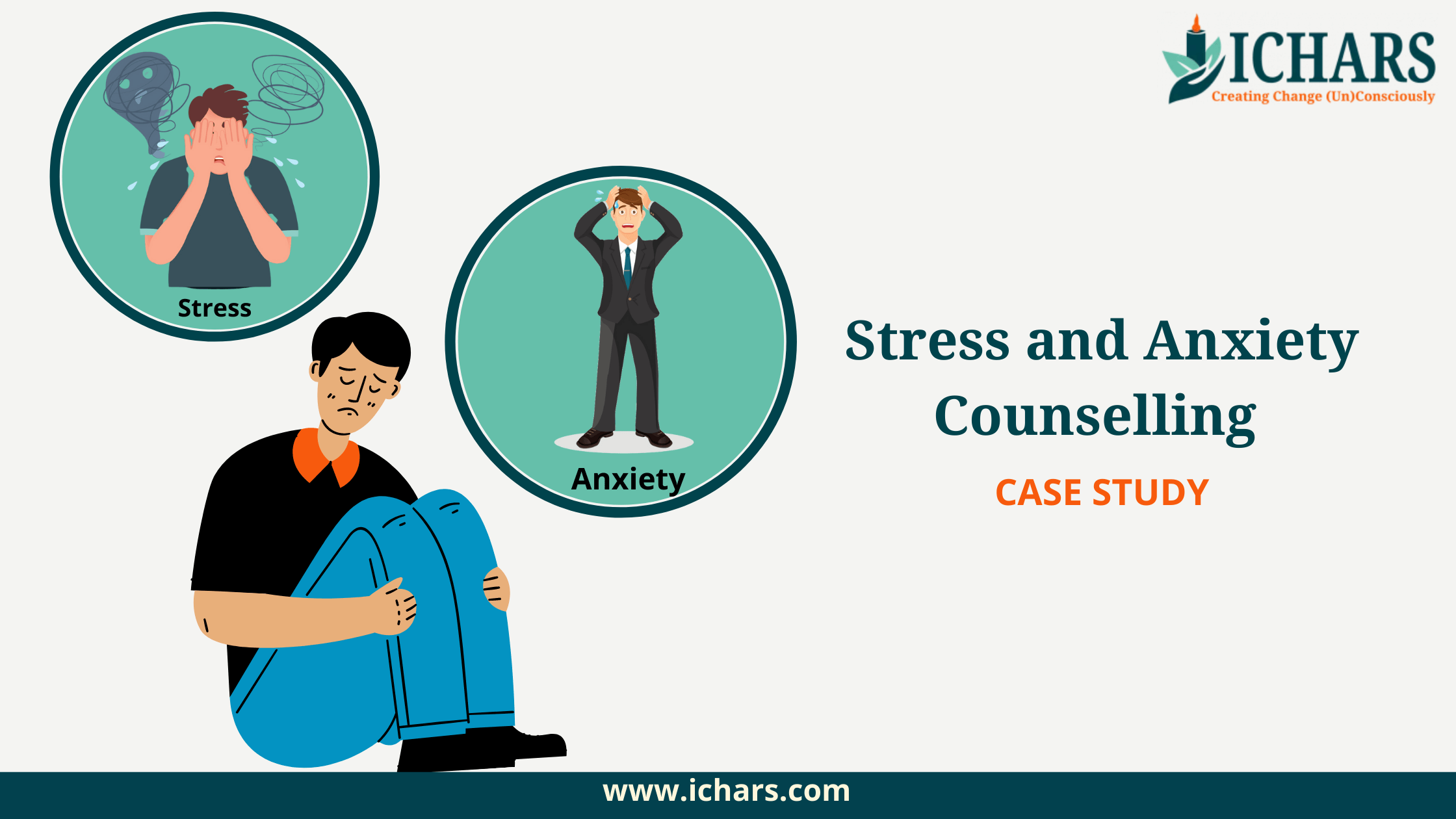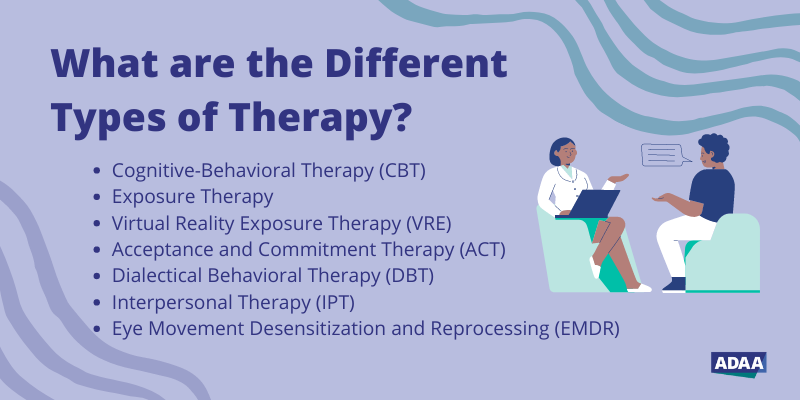Checking Out Different Techniques in Counselling for Anxiousness Disorder for Lasting Modification
When dealing with stress and anxiety problems, it's necessary to check out a range of therapy techniques. Each method provides distinct understandings and tools to assist you handle your symptoms properly. You could discover that integrating techniques can produce the very best outcomes. Nonetheless, comprehending the subtleties of these techniques is essential to fostering long lasting change. Suppose the appropriate combination could release a brand-new level of emotional well-being for you?
Understanding Stress And Anxiety Conditions: A Quick Summary
Stress and anxiety disorders, which influence countless people worldwide, can considerably impact everyday life. You may experience overwhelming sensations of concern or fret that appear unmanageable. These sensations can lead to physical signs and symptoms like a racing heart, sweating, or even dizziness. Common kinds of anxiety disorders consist of generalised anxiety problem, panic problem, and social anxiousness disorder. Each has distinct indicators, yet they all share a propensity to interrupt your routine and relationships.Understanding the root creates of your anxiety is crucial. It could come from genes, brain chemistry, or life experiences. Acknowledging your triggers can help you manage your reactions better. It is essential to remember that you're not alone in this struggle. Many individuals deal with comparable challenges, and looking for help is a strong step toward sensation much better. By discovering stress and anxiety problems, you're already on the course to understanding and handling your problem better.
Cognitive-Behavioral Treatment: Testing Negative Idea Patterns
In Cognitive-Behavioral Treatment, you'll start by identifying the unfavorable thought causes that add to your anxiety. You'll work on replacing them with even more positive alternatives once you identify these ideas. With each other, you'll build reliable coping strategies to help manage your anxiety in everyday scenarios.
Identifying Adverse Idea Triggers

When you experience minutes of distress, recognizing the certain triggers behind your negative ideas can be vital in handling stress and anxiety. Start by focusing on situations that provoke feelings of fear or anxiety. Is it a congested room, a future deadline, or a conversation with certain people? Write down these instances in a journal. This will aid you identify patterns in your thinking. Notification physical sensations that accompany your negative thoughts, like an auto racing heart or tightness in your chest. By determining these triggers, you gain understanding right into what's fueling your anxiousness. Recognizing these connections is the initial step in challenging those ideas and eventually gaining back control over your emotional feedbacks.
Replacing Ideas With Positives
Challenging negative thought patterns is an essential action in changing your frame of mind and reducing stress and anxiety. You may often locate on your own trapped in cycles of insecurity or tragic reasoning. As opposed to letting these thoughts determine your feelings, method changing them with positive affirmations or realistic choices. For instance, when you believe, "I can not handle this," change it to, "I can manage difficulties one step at once." This straightforward adjustment can greatly influence your emotion. Consistently identifying and responding to these unfavorable thoughts assists develop a much healthier interior dialogue. Remember, it takes some time and effort, but regularly practicing this strategy can bring about enduring change, encouraging you to encounter anxiousness with renewed self-confidence and resilience.
Structure Coping Approaches Together
Replacing negative thoughts is only the beginning of taking care of anxiousness properly. To create long lasting adjustment, you require to construct coping approaches that empower you. Cognitive-Behavioral Treatment (CBT) aids you determine and test those purposeless thought patterns. Together, you and your therapist can check out how these ideas influence your feelings and behaviors.Start by establishing functional methods, like journaling or mindfulness exercises, that enable you to challenge anxiety head-on. When you encounter your anxieties gradually, you'll find out to react differently.

Mindfulness and Acceptance-Based Approaches: Cultivating Present-Moment Awareness
As you navigate the complexities of anxiousness, integrating mindfulness and acceptance-based approaches can substantially improve your ability to cultivate present-moment understanding. By focusing on the present moment, you'll locate that you can observe your thoughts and sensations without judgment (Counseling services for anxiety). This method assists you acknowledge your stress and anxiety without feeling overwhelmed by it.Engaging in mindfulness workouts, such as deep breathing, body scans, or assisted reflections, allows you to ground on your own in your present experience. Acceptance-based strategies encourage you to embrace your feelings instead of battle against them. They lose their power over you.Incorporating these practices right into your day-to-day regimen can change just how you respond to anxiety when you approve your sensations. You'll establish resilience and discover to browse difficult circumstances with greater ease. Ultimately, growing present-moment recognition lays the structure for lasting change, empowering you to lead a more fulfilling life
Direct Exposure Treatment: Challenging Worries Gradually
Exposure treatment aids you challenge your anxieties in a steady way, making it less overwhelming. You'll discover strategies to encounter anxiety-provoking situations detailed, while likewise constructing coping approaches to manage your responses. This technique empowers you to take control and minimize anxiousness in time.
Steady Exposure Strategies

When encountering stress and anxiety, progressively challenging your worries can be an effective method to restore control. This technique, referred to as progressive direct exposure, entails gradually exposing yourself to the circumstances or items that cause your anxiousness. Begin with less challenging situations and gradually work your way as much as even more difficult ones. For instance, if you hesitate of public talking, you might begin by speaking in front of a mirror, then progress to sharing ideas with a friend, and at some point attend to a little group. Each action helps desensitize you to the worry, developing your self-confidence with time. Bear in mind, it's essential to rate yourself and celebrate tiny success as you relocate via this process, strengthening your ability to handle stress and anxiety efficiently.
Building Coping Methods
Structure efficient coping techniques is crucial for handling stress and anxiety, specifically as you face your anxieties slowly - Counseling services for anxiety. One effective technique is exposure therapy, where you begin by facing your worries in a controlled fashion. Start with less daunting scenarios and gradually function your method approximately more tough situations. This gradual exposure helps desensitize you to anxiety triggers, making them less overwhelming.Incorporate relaxation strategies, such as deep breathing or mindfulness, to calm your mind throughout direct exposure. Track your progression, commemorating little victories in the process to enhance your confidence. Remember, it's alright to take your time; the objective isn't perfection however consistent improvement. By building these methods, you'll equip on your own to navigate stress and anxiety and accept life a lot more fully
Psychodynamic Therapy: Uncovering Source of Anxiousness
Psychodynamic therapy discovers the unconscious mind, revealing the origin creates of your anxiety. By examining your thoughts, sensations, and previous experiences, this technique aids you reveal underlying conflicts and unsolved issues that may add to your existing anxiety. You'll collaborate with a specialist to investigate childhood years experiences, partnerships, and emotional patterns that form your feedbacks today.As you gain understanding right into these much deeper layers of your subconscious, you'll start to recognize exactly how previous events affect your existing behavior. This understanding can result in catharsis, allowing you to process emotions you could have suppressed.Through the therapeutic relationship, you can additionally determine check here protection devices that may have developed with time, supplying a more clear course to alter. Eventually, psychodynamic treatment outfits you with the devices to address your anxiety at its core, promoting enduring makeover in your psychological wellness.
Integrative and All Natural Techniques: Incorporating Techniques for Greater Efficiency
Incorporating numerous healing techniques can improve your journey toward managing anxiousness a lot more efficiently. By integrating components from cognitive-behavioral therapy, mindfulness practices, and holistic methods, you can develop a customized method that addresses your distinct needs. You may utilize cognitive-behavioral techniques to challenge adverse thought patterns while integrating mindfulness exercises to ground yourself in the present moment.Additionally, exploring all natural techniques such as yoga exercise or reflection can advertise leisure and reduce anxiety symptoms. This blend enables you to establish better self-awareness and resilience.Experimenting with these varied methods can assist you uncover what resonates most with you. Keep in mind, it has to do with finding a harmony that works, as opposed to adhering to a solitary strategy. This integrative technique not only provides immediate alleviation yet also cultivates lasting skills for handling stress and anxiety, empowering you to reclaim control over your life.
The Duty of Assistance Equipments: Structure Strength Through Link
While it may seem that managing stress and anxiety is a solitary trip, having a solid support group can play an important function in your durability. Bordering on your own with empathetic close friends, household, or support system produces a risk-free area where you can openly share your experiences and sensations. You remind on your own that you're not alone in this struggle.These relationships offer encouragement and can offer useful coping strategies that have worked for others when you attach with others. It's likewise an opportunity to gain point of view; close friends can aid you see circumstances in different ways, lowering feelings of isolation.Moreover, psychological assistance cultivates a feeling of belonging, which can greatly reduce stress and anxiety symptoms. By leaning on your support system, you can build resilience and tackle difficulties better. Remember, connecting for assistance is an indicator of strength, and it can make all the difference in your trip toward handling anxiety.
Often Asked Questions
What Are the Common Signs of Anxiety Conditions?
You might experience uneasyness, tiredness, difficulty focusing, impatience, muscle mass tension, and rest disruptions. Physical signs and symptoms can include rapid heart beat, sweating, and shivering. Recognizing these indications early can aid you seek ideal assistance and therapy.
How Much Time Does Treatment Commonly Last for Anxiousness Disorders?
Therapy for stress and anxiety disorders commonly lasts anywhere from a few weeks to a number of months. It really relies on your individual needs, progression, and the methods your specialist uses to help you manage your anxiousness efficiently.
Can Medication Be Utilized Along With Therapy for Anxiousness?
Yes, drug can most definitely be made use of together with treatment for stress and anxiety. Combining both approaches frequently enhances treatment performance, aiding you manage signs while discovering underlying problems with therapy (Counseling services for anxiety). Constantly consult your doctor for personalized suggestions
Exist Self-Help Approaches for Managing Anxiety?
Yes, there are a number of self-help approaches for handling anxiety. You can exercise mindfulness, take part in regular workout, maintain a balanced diet, establish a regular, and utilize deep breathing strategies to assist minimize stress and anxiety signs and symptoms properly.
Just how Do I Know if I Required Professional Help for Anxiety?
